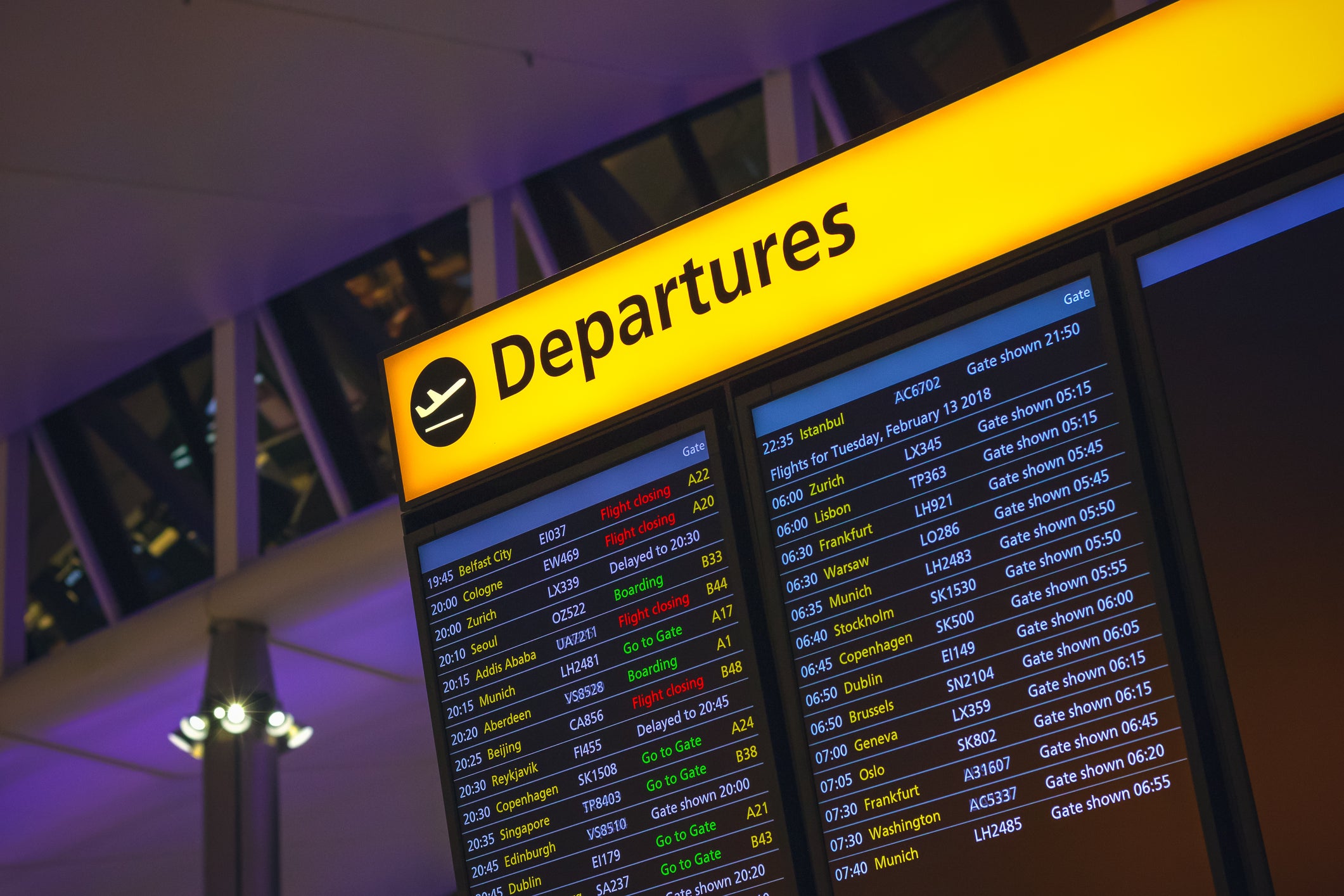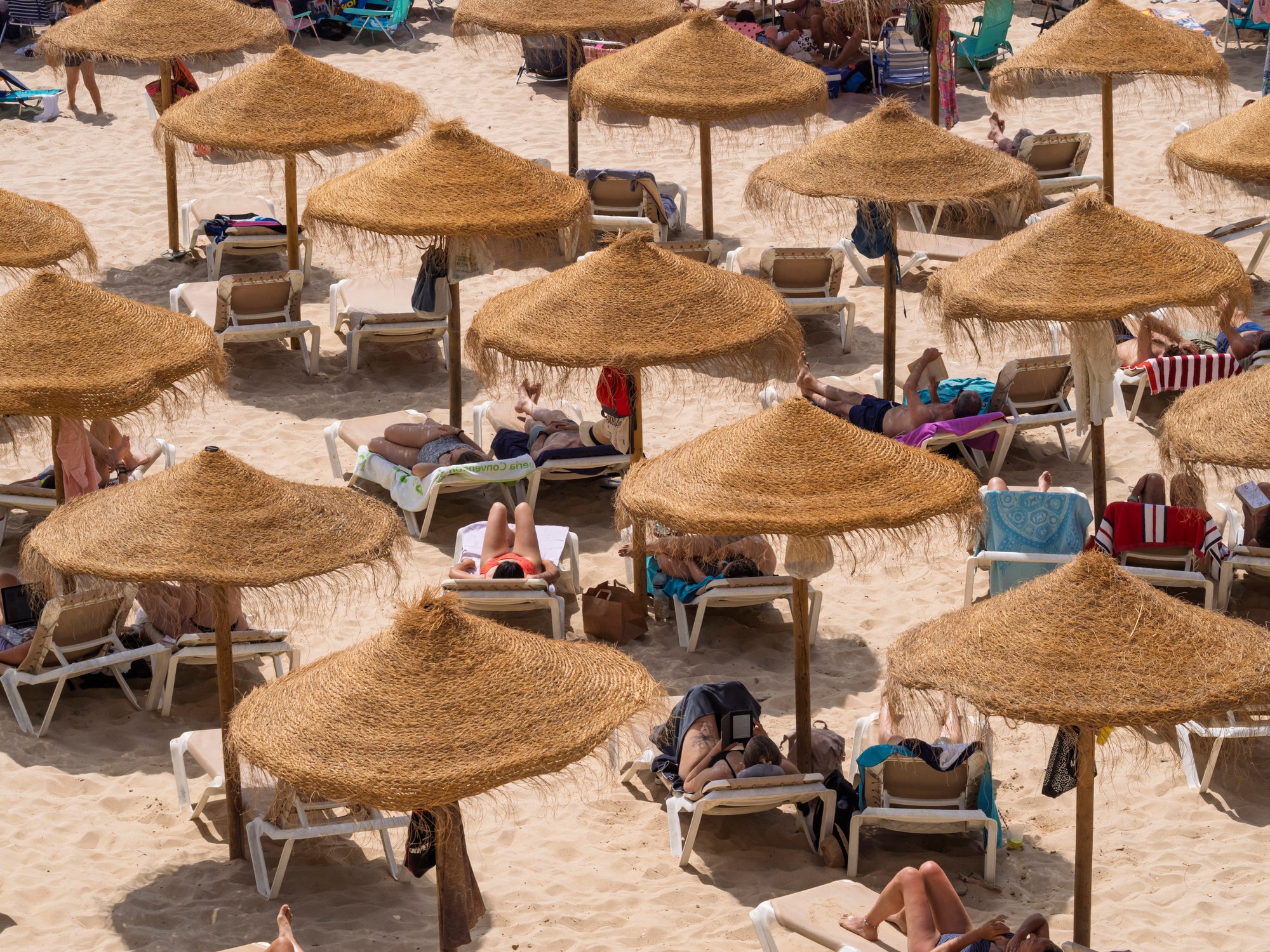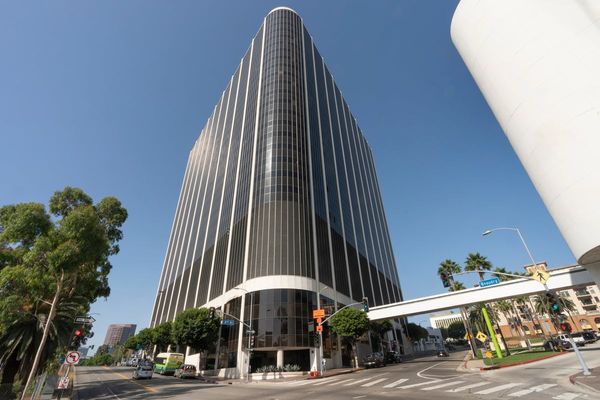
The reason inflation surged by more than the markets were expecting last month is down to a quirk in the way the Office for National Statistics (ONS) chose to compare air fares.
The statisticians used a bizarre methodology that compared term-time prices in 2024 with peak holiday fares in 2025.
Most economists had predicted that Consumer Price Inflation (CPI) for July would remain flat, month on month, at 3.6 per cent. But the index rose to 3.8 per cent, the highest in 18 months.
“The rise in the annual rate reflected a large upward effect from air fares which rose by 30.2 per cent between June and July 2025,” the ONS said on releasing the figures.
The ONS has since told The Independent the increase came mainly from mainland European air fares, rather than domestic or long-haul trips.
Air fares for the Mediterranean and other parts of Europe traditionally rise sharply as soon as school term ends, particularly from England and Wales. Prices slump when schools go back. But this phenomenon should already be “baked in” to inflation calculations – precisely to avoid sharp movements in the CPI of the kind seen for July 2025.
The Independent has investigated how the statisticians handle European air fare data.

A range of flights is chosen, with outbound flights on what is termed “index day” and the return leg two weeks later.
The dates chosen were 9-23 July in 2024, but 15-29 July this summer.
As fares generally rise steadily through July, choosing the second Tuesday of the month as the measure for 2024 and the third Tuesday for 2025 inevitably meant a significant rise in fares.
This effect was compounded by the days on which most schools in England and Wales broke up for summer – earlier in 2025 than the previous year.
The ONS has told The Independent it believes the key break-up date in 2025 was Thursday 18 July – just three days after the “index day” this summer.
In 2024, the main break-up date was harder to identify, but fell in the week from 22-26 July.
Senior travel trade sources have confirmed that a significant number of families will fly out within a few days of term ending, and return a week or 10 days later. This causes a sharp increase in fares on the homeward legs.
Staffordshire travel agent Gilly Bachelor said: “Lots go away as soon as the main summer holiday start. Conversely, prices dip around GCSE and A-level results weeks.”
In 2025, many families departed the UK between Friday 19 July and Monday 22 July, returning between a week and 10 days later – resulting in a sharp rise in demand, and therefore fares, on the ONS’s chosen dates.
There could be no similar effect in 2024. Air fares were measured outbound to Europe on 9 July and back on 23 July – before many schools had even broken up.

In summary, the ONS chose to compare air fares in 2024 with no significant “school holiday effect” against those this year on which the inbound legs sustained strong demand and therefore higher prices.
Unsurprisingly, statisticians saw a sharp increase in July 2025 compared with a year earlier. It was the largest monthly rise in air fares recorded since data collection began in 2001, and was enough to impact significantly the headline rate of inflation.
An ONS spokesperson said: “Our inflation statistics are compiled using an internationally recognised approach to measuring air fares that does show volatility, which we very clearly reflect in our publications.
“The choice of collection days and the number of weeks between them depends on operational considerations.
“We provide a full picture of all underlying price pressures in the economy. Our commentary and accompanying publication mentioned air fares as well as rising prices for food and motor fuels as other key contributors to this month’s headline figure.”
July’s inflation measures have historically been particularly significant because the following year’s rail-fare increase is traditionally linked to the rate.
The government says it has not yet made a decision on how much the cost of train tickets will rise.
The question remains: how much did air fares actually rise in July compared with the previous year? Demand for aviation continues to be buoyant, while the supply of seats has been constrained by delivery delays with the Boeing 737 Max to Ryanair and problems with engines fitted to some of Wizz Air's Airbus fleet.
Michael O'Leary, chief executive of Europe’s biggest budget airline, Ryanair, said the summer increase is between five and six per cent. Such a rise would not significantly affect to the headline rate of inflation.
The data scientist, Dr Nick Brown, has reviewed The Independent's analysis. He said: “On the plus side, it means that next July's CPI will be 0.2 per cent lower.” Doubtless the chancellor will be putting that in her diary.
Read more: British holidaymakers abroad splurge more than double what foreign tourists spend in the UK







